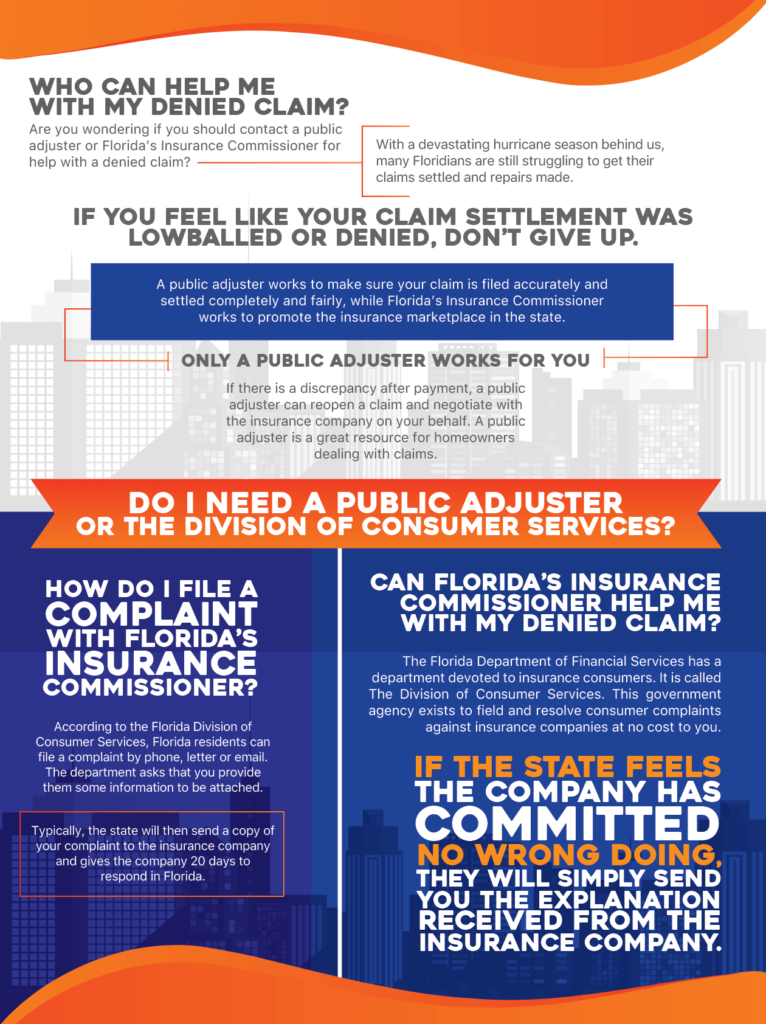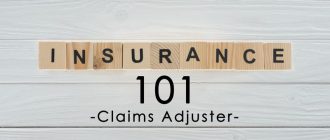
The Ethical Responsibilities of an Insurance Adjuster.
An insurance adjuster plays a crucial role in the insurance industry. They are responsible for assessing and evaluating insurance claims, determining the extent of coverage, and negotiating settlements. However, along with these duties come ethical responsibilities that must be upheld to ensure fairness and integrity in the process.
One of the primary ethical responsibilities of an insurance adjuster is to act honestly and with transparency. This means providing accurate information to the policyholder or claimant, explaining the coverage and claims process clearly, and ensuring that all parties involved are aware of their rights and obligations. It also means avoiding any conflicts of interest or appearances of impropriety that could compromise the fairness of the claims process.
Another essential ethical responsibility of an insurance adjuster is to treat all parties involved in a claim with respect and empathy. This means listening to the concerns and needs of the policyholder or claimant, acknowledging their emotions and frustrations, and responding in a timely and professional manner. It also means considering all relevant evidence and information when making decisions, rather than allowing personal biases or external pressures to influence the outcome of a claim.
Furthermore, an insurance adjuster must adhere to the highest standards of professional conduct and confidentiality. They must maintain the privacy and confidentiality of all sensitive information related to the claim, ensuring that it is only shared with authorized individuals and solely for the purpose of processing the claim. They should also avoid any actions or behaviors that could undermine the trust and confidence that policyholders and claimants place in the insurance industry.
In conclusion, being an insurance adjuster comes with significant ethical responsibilities. Upholding fairness and integrity in the claims process is paramount to ensuring the trust and confidence of policyholders and claimants. By acting honestly and transparently, treating all parties involved with respect and empathy, and maintaining the highest standards of professional conduct and confidentiality, insurance adjusters can fulfill their ethical obligations and contribute to the overall well-being of the insurance industry.
The Ethical Responsibilities of an Insurance Adjuster
Insurance adjusters play a crucial role in the insurance industry, serving as the link between policyholders and insurance companies. They are responsible for assessing and evaluating claims, determining coverage, and negotiating settlements. However, with such power and authority, insurance adjusters also have important ethical responsibilities.
An insurance adjuster’s primary ethical responsibility is to ensure fairness in the claims process. This means treating all policyholders with equal consideration, regardless of their gender, race, age, or any other factors. They must approach each claim with an open mind and gather all the necessary information before making any decisions.
Integrity is another essential ethical trait for an insurance adjuster. They must conduct themselves with honesty and transparency throughout the claim process. This includes providing accurate information to policyholders, explaining the coverage and settlement procedures, and being proactive in addressing any questions or concerns.
Insurance adjusters must also maintain confidentiality and protect the privacy of policyholders. They should respect the sensitive nature of personal information and only disclose it when necessary for the claims process. This includes not sharing confidential information with unauthorized individuals or entities.
Furthermore, insurance adjusters must avoid any conflicts of interest that may compromise their objectivity. They should disclose any potential conflicts to both the policyholder and the insurance company and refrain from acting in a way that may benefit one party over the other. This ensures that their decisions are based on fairness and impartiality.
In conclusion, insurance adjusters have ethical responsibilities to ensure fairness and integrity in their role. By treating all policyholders equally, maintaining transparency, protecting privacy, and avoiding conflicts of interest, they contribute to a trustworthy and efficient claims process for all parties involved.
Maintaining Fairness and Integrity
An insurance adjuster plays a crucial role in the insurance industry, responsible for assessing claims and determining the appropriate amount of compensation to be awarded to policyholders. However, their role goes beyond just evaluating claims; they also have ethical responsibilities to ensure fairness and integrity throughout the claims process.
One of the key ethical responsibilities of an insurance adjuster is to remain impartial and unbiased when evaluating claims. They must ensure that their personal beliefs or relationships do not influence their decision-making process. To accomplish this, adjusters must approach their work with a strong sense of integrity, considering all relevant factors and evidence in an objective manner.
Another ethical responsibility of an insurance adjuster is to communicate in a clear and transparent manner with policyholders. They should provide accurate information about the claims process, including any potential limitations or requirements, ensuring that policyholders have a clear understanding of what to expect. This transparency builds trust and helps to maintain fairness throughout the process.
Moreover, insurance adjusters must demonstrate fairness when determining the amount of compensation to be awarded. They should analyze the policy coverage, review any applicable regulations or laws, and consider the extent of the damages incurred. It is crucial that adjusters do not unjustly deny claims or underestimate the value of the losses suffered by the policyholders.
To promote fairness, insurance adjusters should also continuously update their knowledge and skills. They should stay informed about industry standards, regulations, and best practices. This allows them to make well-informed decisions and ensures that they are always acting in the best interest of policyholders.
| Key Ethical Responsibilities: | Actions |
| 1. Impartiality and Integrity | Remain unbiased and objective in evaluating claims. |
| 2. Clear and Transparent Communication | Provide policyholders with accurate information about the claims process. |
| 3. Fair Compensation | Ensure the amount of compensation is fair and just. |
| 4. Continuous Learning | Stay updated with industry standards and best practices. |
In conclusion, maintaining fairness and integrity is of utmost importance for an insurance adjuster. By remaining impartial, communicating transparently, providing fair compensation, and continuously updating their knowledge, adjusters can ensure that they fulfill their ethical responsibilities and contribute to building trust in the insurance industry.
Evaluating Claims with Objectivity
As an insurance adjuster, it is your ethical responsibility to evaluate claims with objectivity. This means that you must approach each claim with fairness and integrity, basing your decisions on facts and evidence rather than personal biases or opinions.
Objectivity is essential in the insurance industry because it ensures that policyholders are treated fairly and receive the compensation they are entitled to. By removing personal biases from the claims evaluation process, you can provide a more accurate and unbiased assessment of the damages and the amount of compensation that should be paid.
To evaluate claims with objectivity, an ethical adjuster must gather all relevant information and documentation related to the claim. This includes reviewing the policy terms and conditions, examining any photographs or videos of the damages, and interviewing all parties involved in the incident.
During the evaluation process, it is important to remain neutral and not be influenced by external factors. This means that personal relationships, previous experiences, and the potential impact on premiums should not cloud your judgment or affect the outcome of the claim. By maintaining objectivity, you can ensure that the claims process is fair and equitable for all parties involved.
Furthermore, an ethical adjuster must also communicate their evaluation findings clearly and honestly. This means providing policyholders with a detailed explanation of the reasons behind the decision, including any limitations or exclusions that may apply. Transparency is key in maintaining trust and confidence in the insurance industry.
In conclusion, evaluating claims with objectivity is a fundamental ethical responsibility of an insurance adjuster. By approaching each claim with fairness, integrity, and a commitment to basing decisions on facts and evidence, you can ensure that policyholders receive the compensation they deserve and maintain the trust of all parties involved.
Investigating Claims Thoroughly
As an insurance adjuster, one of the key responsibilities is to investigate claims thoroughly. This ethical duty ensures that all parties involved in the insurance process are treated fairly and with integrity.
When an insurance claim is filed, it is the adjuster’s role to gather all relevant information and evidence to determine the validity and extent of the claim. This involves conducting interviews, reviewing documentation, and examining any physical evidence that may be available.
By conducting a comprehensive investigation, insurance adjusters can ensure that accurate assessments are made and that all parties are treated fairly. They must objectively analyze the information gathered and make well-informed decisions based on the evidence presented.
Insurance adjusters are also responsible for verifying the accuracy of the information provided by the policyholder and other parties involved. This requires attention to detail and a commitment to ethical behavior. If any discrepancies or inconsistencies are found, the adjuster must diligently pursue further investigation to ensure that the claim is handled correctly.
Additionally, insurance adjusters should communicate clearly and effectively with all parties involved in the claims process. This includes providing timely updates and explanations of the investigation process, as well as addressing any concerns or questions that may arise.
Overall, investigating claims thoroughly is a crucial aspect of an insurance adjuster’s ethical responsibilities. By doing so, they can ensure fairness, integrity, and trust in the insurance industry.
Ensuring Accuracy in Damage Assessment
As an insurance adjuster, one of the key responsibilities is to accurately assess the damage caused by an incident or accident. This ethical duty ensures fairness and integrity in the claim process.
Accurate damage assessment requires a meticulous examination of the affected property, gathering evidence, and consulting with experts if needed. It is important to document all findings and observations to support the claims decision. Communication with the insured party and any involved parties is crucial to obtain all necessary information and clarify any potential discrepancies.
To ensure accuracy, an adjuster must be well-versed in various types of damages, such as property, vehicle, or personal injury. They should possess knowledge of industry standards, regulations, and guidelines to make informed judgments regarding coverage and compensation. Utilizing available resources, such as databases and historical data, can aid in the accurate assessment of damages.
Furthermore, an adjuster must maintain objectivity and avoid any conflicts of interest that could compromise the accuracy of their assessment. Ethical conduct entails treating all parties involved in a fair and impartial manner, regardless of personal biases or external pressures.
Additionally, ongoing professional development and training are essential for adjusters to stay updated with industry advancements and best practices in damage assessment. This ensures that they possess the necessary skills and knowledge to perform their responsibilities effectively and accurately.
In conclusion, ensuring accuracy in damage assessment is a critical part of an insurance adjuster’s ethical responsibilities. By conducting thorough examinations, following industry standards, and maintaining objectivity, adjusters can fulfill their duty to provide fair and accurate evaluations of damages.
Protecting Policyholders’ Rights
Insurance adjusters have a number of important responsibilities, one of which is to protect the rights of policyholders. This ethical duty requires adjusters to ensure fairness and integrity throughout the claims process.
Policyholders have a right to receive timely and accurate information from their insurance company. Adjusters must provide clear explanations of policy terms, coverage options, and claim procedures. They should also promptly respond to policyholders’ inquiries and keep them informed of any updates or changes regarding their claims.
In addition, insurance adjusters must handle policyholders’ claims with honesty and fairness. They should thoroughly investigate each claim, collecting all relevant evidence and speaking with witnesses if necessary. Adjusters must also evaluate claims objectively and without bias, ensuring that policyholders receive the compensation they are entitled to under their policy.
Another important aspect of protecting policyholders’ rights is handling claims in a timely manner. Adjusters should strive to process claims quickly and efficiently, minimizing any unnecessary delays or burdens on the policyholders. This includes promptly reviewing and approving valid claims, as well as providing timely payments to policyholders.
In conclusion, insurance adjusters have a crucial role in protecting policyholders’ rights. By upholding ethical responsibilities and ensuring fairness and integrity in the claims process, adjusters can help policyholders receive the benefits they deserve from their insurance policies.
Adhering to Legal and Regulatory Standards

Insurance adjusters have a critical role in ensuring that the insurance process is fair and transparent. As such, they have ethical and legal responsibilities to adhere to the legal and regulatory standards set forth by governing bodies and industry regulators.
An insurance adjuster must have a strong understanding of the laws and regulations that govern their jurisdiction. They must be knowledgeable about insurance policies, coverage limits, and exclusions, as well as the responsibilities and rights of policyholders and insurance companies.
One of the primary ethical responsibilities of an insurance adjuster is to accurately and objectively assess claims. They must carefully review all relevant documentation, such as police reports, medical records, and witness statements, to determine the extent of the insurance coverage and the validity of the claim.
Insurance adjusters must also ensure that they handle claims in a timely and efficient manner. They should communicate with policyholders and claimants promptly, providing them with updates on their claims and addressing any concerns or questions they may have. This helps to build trust and confidence in the insurance process.
Furthermore, insurance adjusters must maintain strict confidentiality when handling claims. They must protect the personal and financial information provided by policyholders and claimants. This includes safeguarding documents and records and ensuring that only authorized individuals have access to sensitive information.
To ensure fairness, integrity, and compliance with legal and regulatory standards, insurance adjusters may be subject to periodic audits and oversight by industry regulators. They must cooperate fully with these audits and provide accurate and complete information when requested.
By adhering to the legal and regulatory standards, insurance adjusters play a crucial role in ensuring that the insurance industry operates ethically and transparently. Their commitment to these standards helps to maintain the trust and confidence of policyholders and ensures that claims are handled fairly and accurately.
Avoiding Conflict of Interest
One of the most important ethical responsibilities of an insurance adjuster is to avoid any conflict of interest. A conflict of interest occurs when the adjuster’s personal or financial interests interfere with their duty to act in the best interest of the insured and the insurance company.
Insurance adjusters must always prioritize the needs and interests of their clients, the insured. They should not allow any personal relationships, financial arrangements, or other external factors to influence their decisions and actions. This includes refraining from accepting gifts, favors, or bribes that could compromise their objectivity and fairness.
Adjusters should also avoid any situations where their personal or financial interests could be compromised, such as evaluating claims involving close friends or family members. This could create a perception of bias and undermine the trust and credibility of the insurance industry.
Furthermore, adjusters should disclose any potential conflicts of interest to their clients and the insurance company as soon as they become aware of them. This transparency helps to maintain trust in the adjuster’s integrity and ensures that appropriate measures can be taken to mitigate any potential bias or unfairness.
In conclusion, avoiding conflicts of interest is a fundamental ethical responsibility for insurance adjusters. By prioritizing the needs of the insured and maintaining objectivity, adjusters can ensure fairness and uphold the integrity of the insurance industry.
Communicating Effectively with All Parties
As an insurance adjuster, it is your responsibility to communicate effectively with all parties involved in a claim. This includes the policyholder, the insurance company, and any third parties affected by the claim. Effective communication is essential to ensuring fairness and integrity in the claims process.
When communicating with the policyholder, it is important to clearly explain the claims process, any applicable deadlines, and the policy coverage. This helps to manage expectations and ensures that the policyholder understands their rights and responsibilities. It is also important to actively listen to the policyholder’s concerns and address them in a timely and empathetic manner.
When communicating with the insurance company, you must provide accurate and detailed reports of the claim. This includes collecting all relevant information, such as photos, witness statements, and police reports, and presenting it in a clear and concise manner. It is important to maintain honesty and integrity throughout the process, providing unbiased and objective assessments.
When communicating with third parties, such as witnesses or other affected individuals, it is important to be professional, respectful, and considerate. These individuals may be going through a difficult time, and it is your responsibility to ensure that their voices are heard and their needs are addressed. This includes keeping them informed of the progress of the claim and promptly responding to any questions or concerns they may have.
In all communications, it is important to use plain and simple language that is easily understood by all parties. Avoid using complex jargon or technical terms that may confuse or intimidate individuals. In addition, it is important to be transparent and honest in all communications, providing accurate and timely information.
By effectively communicating with all parties involved in a claim, an insurance adjuster can ensure fairness and integrity in the claims process. This fosters trust and confidence in the insurance industry and helps to protect the rights and interests of all parties affected by a claim.
Respecting Privacy and Confidentiality
One of the important responsibilities of an insurance adjuster is to respect the privacy and confidentiality of the individuals involved in the insurance claim process.
This includes protecting the personal and sensitive information provided by the policyholders, claimants, and any other parties involved. Insurance adjusters must handle this information with the utmost care and adhere to strict privacy and data protection laws.
Insurance adjusters should only collect and use personal information that is necessary for evaluating and processing insurance claims. They should also ensure that this information is not used for any other purposes without the consent of the individuals involved.
Confidentiality is also crucial in the role of an insurance adjuster. They must not disclose any confidential information about the policyholders, claimants, or the insurance company without proper authorization. This includes maintaining the secrecy of any documentation, records, or discussions related to the insurance claim.
By respecting privacy and confidentiality, insurance adjusters can maintain the trust and confidence of the individuals they serve. This helps in building a strong relationship with the policyholders and ensures fairness and integrity in the insurance claim process.
Applying Ethical Decision-making Frameworks
As an insurance adjuster, it is crucial to navigate ethical dilemmas in order to fulfill your responsibilities to both the insurance company and the policyholders. To ensure fairness and integrity in your decision-making process, it is important to apply ethical decision-making frameworks. These frameworks provide a structured approach to analyzing the ethical implications of different options and choosing the most ethical course of action.
One commonly used framework is the Utilitarian approach, which focuses on maximizing overall happiness or well-being. When using this framework, an adjuster considers the potential consequences of different decisions and chooses the option that will result in the greatest overall benefit for all stakeholders involved, including the policyholder, the insurance company, and other parties affected by the claim.
Another framework to consider is the Rights-based approach, which focuses on protecting and respecting the fundamental rights of individuals. When using this framework, an adjuster evaluates the potential impact of different decisions on the rights of all involved parties and chooses the option that upholds and protects these rights to the fullest extent possible.
The Justice-based approach is also relevant in ethical decision-making. This approach focuses on fairness and equality. An adjuster employing this framework evaluates the distribution of benefits and burdens among all parties involved and strives to ensure that the decision is fair and just. This may involve considering factors such as the policyholder’s contributions, the terms of the insurance policy, and any legal or regulatory requirements.
It is important for an adjuster to have a clear understanding of these ethical decision-making frameworks and to apply them appropriately in different scenarios. This will help ensure that decisions are made in a fair, unbiased, and morally justifiable manner, fulfilling the adjuster’s ethical responsibilities in the insurance industry.
| Utilitarian Approach | Focuses on maximizing overall happiness or well-being |
| Rights-based Approach | Focuses on protecting and respecting fundamental rights |
| Justice-based Approach | Focuses on fairness and equality |
Treating All Individuals with Fairness and Respect
As an insurance adjuster, one of the key responsibilities is to ensure that all individuals involved in a claim are treated with fairness and respect. This applies to both the policyholder and any other parties affected by the claim.
When assessing a claim, it is important for the insurance adjuster to approach each case with an unbiased mindset. They should gather all relevant information and examine the evidence thoroughly before making any decisions. By doing so, the adjuster can ensure that they are treating all individuals involved in the claim fairly and with integrity.
In addition to being fair, it is crucial for insurance adjusters to treat all individuals with respect throughout the claims process. This means actively listening to their concerns, communicating clearly and transparently, and providing updates on the progress of the claim. It is important for adjusters to be empathetic and understanding, as people may be going through a difficult time due to their loss or damages.
Furthermore, insurance adjusters should strive to maintain professionalism at all times. This includes being punctual, responding promptly to inquiries, and keeping all confidential information secure. By demonstrating professionalism, adjusters can foster trust with their clients and create a positive impression of the insurance company they represent.
In conclusion, treating all individuals involved in a claim with fairness and respect is a fundamental responsibility of an insurance adjuster. By approaching each case with an unbiased mindset, actively listening to concerns, and maintaining professionalism, adjusters can ensure that they are fulfilling their ethical obligations and upholding the integrity of the insurance industry.
undefined
What are the ethical responsibilities of an insurance adjuster?
The ethical responsibilities of an insurance adjuster include ensuring fairness and integrity in the claims handling process. They must investigate claims thoroughly, provide accurate assessments, and treat all parties involved with honesty and respect.
How does an insurance adjuster ensure fairness in the claims process?
An insurance adjuster ensures fairness in the claims process by conducting a fair and unbiased investigation. They gather all the necessary information, interview witnesses, and review policy terms to make an equitable decision. They should avoid any conflicts of interest and treat all parties involved equally.
What role does integrity play in the work of an insurance adjuster?
Integrity is crucial for an insurance adjuster as it involves maintaining high ethical standards and being honest in their interactions with claimants, policyholders, and other parties. They should not manipulate evidence or misrepresent the facts to protect the interests of the insurance company. Their decisions should be based solely on the merits of each case.
What happens if an insurance adjuster fails to fulfill their ethical responsibilities?
If an insurance adjuster fails to fulfill their ethical responsibilities, it can lead to unfair claim settlements, legal disputes, and damage to the reputation of the insurance company. They may also face disciplinary actions or lose their license to practice as an adjuster.
How can policyholders ensure that their insurance adjuster is acting ethically?
Policyholders can ensure that their insurance adjuster is acting ethically by documenting all communication, requesting written explanations for claim decisions, and seeking assistance from legal professionals if they suspect any unfair practices. They can also file complaints with the insurance company or regulatory authorities if they believe their rights are being violated.
What are the main ethical responsibilities of an insurance adjuster?
The main ethical responsibilities of an insurance adjuster include ensuring fairness and integrity in the claims process. This means accurately and honestly assessing claims, treating all policyholders equally, and avoiding any conflicts of interest.






